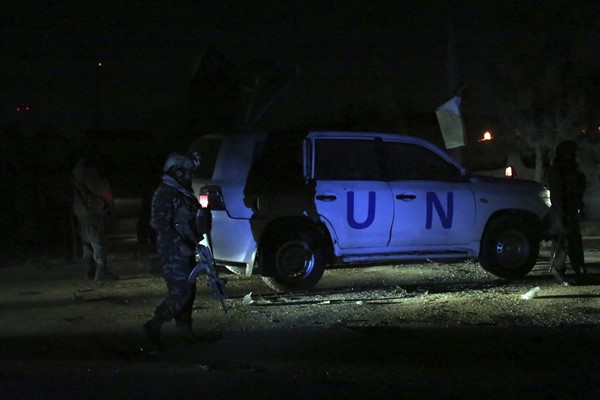The images of humanitarian chaos and the deteriorating situation for women after the swift Taliban takeover of Kabul have left the international community grasping for options. In the face of Afghan women’s desperate pleas for support, women’s rights NGOs in the United States recently called for a United Nations peacekeeping operation in Afghanistan. There is no question that such an operation, if mounted earlier, would have been beneficial to Afghan civilians and particularly to women. As David Cortright and I have written before, and as much scholarly research shows, U.N. peacekeeping operations work better than Western counterinsurgencies at maintaining durable peace, protecting civilians and building human rights culture.*
According to some experts, peacekeeping efforts could have done far more to support an inter-Afghan settlement than a continued U.S. presence. Roya Rahmani, the former Afghan ambassador to the United States, also expressed regret on CNN this week that “Unfortunately, the international community did not broker and enforce a settlement leading to the establishment of a new inclusive government in time, which could have been held together with the help of a peace-keeping mission.”
The ideal moment for a peacekeeping operation was arguably long ago, as an early alternative to an extended U.S. occupation, or even earlier this year, as a mechanism for extracting the U.S. from Afghanistan without leaving behind a power vacuum. Even one or two weeks ago, a Bosnia-style U.N. Security Council-authorized Chapter VII intervention to stem the Taliban siege against urban areas and bring both parties to the peace table might have laid a foundation for a peacekeeping force.

